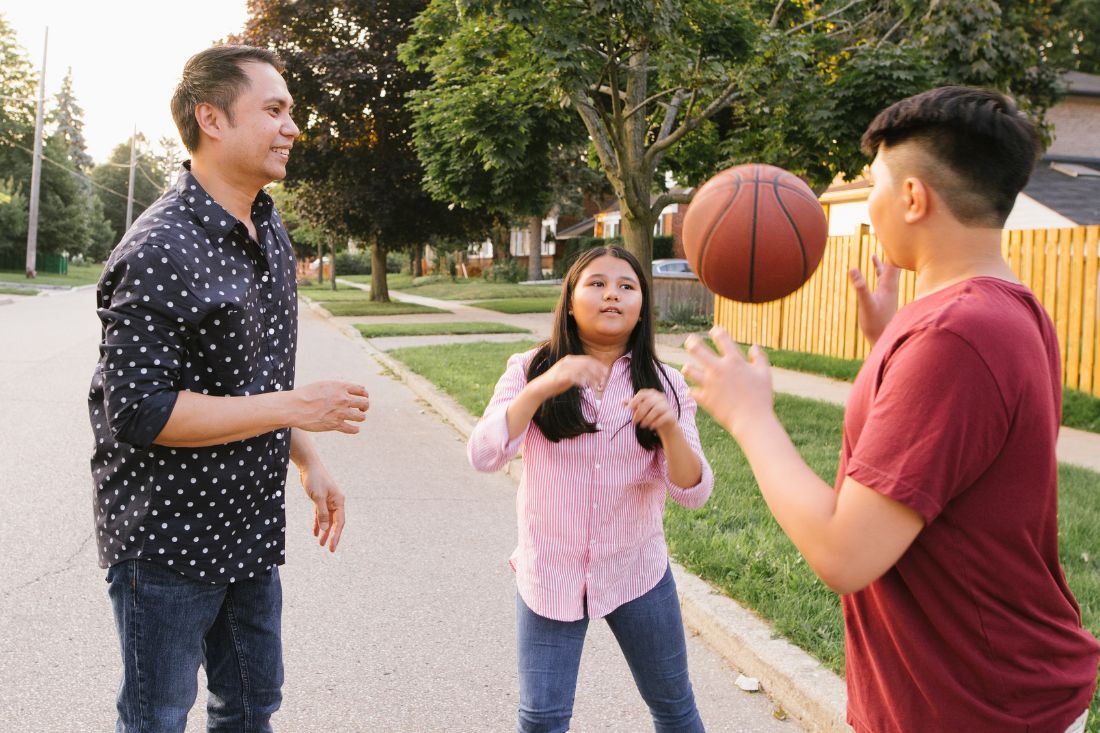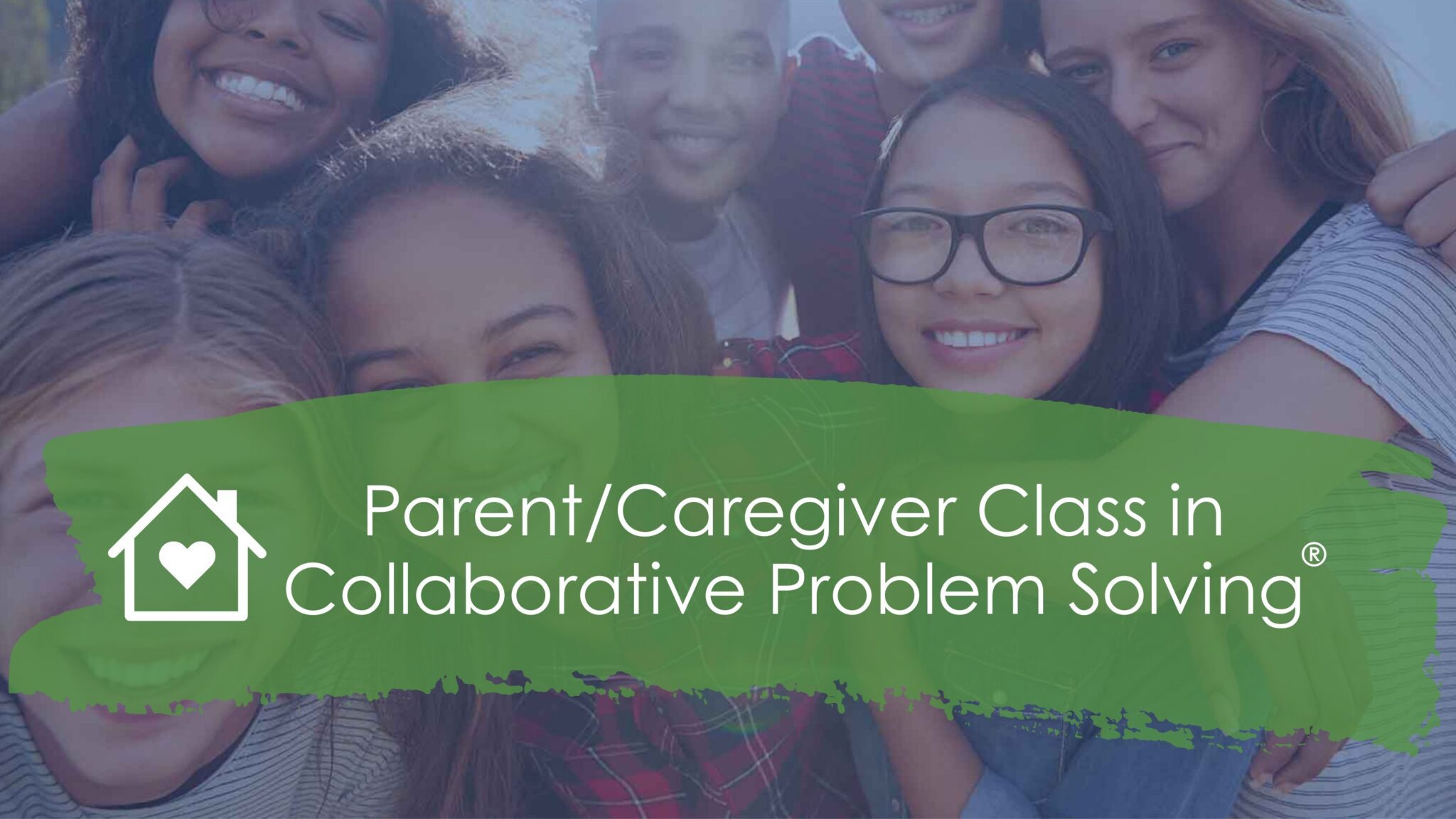
As a parent, I spend a lot of time thinking about (and searching on the internet) my kids’ behavior. Is what they’re doing normal? Should they have outgrown this by now? How do I fix it?
Traditional views of child behavior suggest that from a young age, children learn to use behavior to get what they want (e.g., treats, toys, attention) and avoid what they don’t want (e.g., chores, homework, eating vegetables). If we believe our kids are fully in control of their behavior and consciously choosing when to comply or defy our requests, then it makes sense to use strategies that aim to help them make better choices. This is the foundation of conventional parenting approaches, which typically rely on rewards and consequences to encourage compliance and discourage undesired behaviors.
You can probably think of times when the possibility of a reward or the threat of a consequence helped achieve the desired outcome. But you’ve likely also experienced times when these strategies didn’t work—or even made things worse. That’s because there are limits to what rewards and consequences can accomplish. These methods often fall short when a child knows what’s expected, wants to do it, but simply lacks the skill to follow through. When rewards and consequences are the only tools in our parenting toolbox, children who lack the skill (not the will) to do well may end up unfairly punished or unrewarded. Over time, this can lead to power struggles that leave parents feeling stressed and ineffective—and children feeling frustrated and unsuccessful.
Collaborative Problem Solving® (CPS) is an evidence-based approach rooted in brain science that offers an effective way to understand and respond to children’s behavior. CPS has been tested and proven to work through significant research in families, schools, and therapeutic programs. Evidence shows that CPS supports healthy parent-child relationships by increasing empathy for our children while reducing parental stress. In addition to shifting how we think and feel about our kids, CPS provides a structured method for identifying and solving problems together. This helps build essential thinking skills in children and reduces challenging behaviors.
Like the age-old chicken-or-egg question, research shows a strong link between behavioral challenges in children and stress in parents. Higher ratings of child behavior difficulties are related to higher levels of parenting stress—and vice versa. Parenting stress is often associated with more punitive and critical parenting practices, which can further increase negative parent-child interactions.

Parents, guardians, families, and caregivers are invited to register for our supportive 6-week, live, online course to learn Collaborative Problem Solving® (CPS), the evidence-based and trauma-informed approach for helping children develop the skills they need to manage their behavior.
CPS helps break this cycle by reshaping how parents interpret their child’s behavior. The core belief of CPS is: “Kids do well if they can.” In other words, your child is doing the best they can with the skills they have at that moment. They’re not trying to make your life difficult—they’re having a difficult time themselves. During challenging moments, CPS encourages parents to be curious, not furious.
Findings demonstrate that parents and caregivers who learn CPS report lower levels of stress. They understand that difficult behavior stems from skill deficits rather than willful defiance, and they develop greater empathy for their child’s struggles. They also become better at anticipating situations that may lead to problems and intervening in proactive, collaborative ways that reduce family conflict.
Beyond changing the way parents view behavior, CPS teaches a concrete, step-by-step process for identifying and solving problems with children. Research shows that parents who use CPS report fewer behavioral issues, including oppositional-defiant behavior, conduct problems, and ADHD symptoms. They also report improvements in their children’s executive functioning—especially in managing emotions, controlling impulses, and thinking flexibly.
Parenting isn’t about having all the answers. It’s about finding the right tools to understand and support your child. Collaborative Problem Solving gives you a roadmap for doing just that—helping you move from daily battles to meaningful connection.
With CPS, you and your child work together, learn together, and grow together. And that’s the foundation of a strong, healthy relationship.
The Collaborative Problem Solving approach is supported by over two decades of research across home, clinical, and school settings. Here are a few key studies that highlight its impact with families:
"*" indicates required fields
| Cookie | Duration | Description |
|---|---|---|
| __cf_bm | 1 hour | This cookie, set by Cloudflare, is used to support Cloudflare Bot Management. |
| __hssc | 1 hour | HubSpot sets this cookie to keep track of sessions and to determine if HubSpot should increment the session number and timestamps in the __hstc cookie. |
| __hssrc | session | This cookie is set by Hubspot whenever it changes the session cookie. The __hssrc cookie set to 1 indicates that the user has restarted the browser, and if the cookie does not exist, it is assumed to be a new session. |
| cookielawinfo-checkbox-advertisement | 1 year | Set by the GDPR Cookie Consent plugin, this cookie records the user consent for the cookies in the "Advertisement" category. |
| cookielawinfo-checkbox-analytics | 11 months | This cookie is set by GDPR Cookie Consent plugin. The cookie is used to store the user consent for the cookies in the category "Analytics". |
| cookielawinfo-checkbox-functional | 11 months | The cookie is set by GDPR cookie consent to record the user consent for the cookies in the category "Functional". |
| cookielawinfo-checkbox-necessary | 11 months | This cookie is set by GDPR Cookie Consent plugin. The cookies is used to store the user consent for the cookies in the category "Necessary". |
| cookielawinfo-checkbox-others | 11 months | This cookie is set by GDPR Cookie Consent plugin. The cookie is used to store the user consent for the cookies in the category "Other. |
| cookielawinfo-checkbox-performance | 11 months | This cookie is set by GDPR Cookie Consent plugin. The cookie is used to store the user consent for the cookies in the category "Performance". |
| CookieLawInfoConsent | 1 year | CookieYes sets this cookie to record the default button state of the corresponding category and the status of CCPA. It works only in coordination with the primary cookie. |
| viewed_cookie_policy | 11 months | The cookie is set by the GDPR Cookie Consent plugin and is used to store whether or not user has consented to the use of cookies. It does not store any personal data. |
| Cookie | Duration | Description |
|---|---|---|
| li_gc | 6 months | Linkedin set this cookie for storing visitor's consent regarding using cookies for non-essential purposes. |
| lidc | 1 day | LinkedIn sets the lidc cookie to facilitate data center selection. |
| UserMatchHistory | 1 month | LinkedIn sets this cookie for LinkedIn Ads ID syncing. |
| Cookie | Duration | Description |
|---|---|---|
| __hstc | 6 months | Hubspot set this main cookie for tracking visitors. It contains the domain, initial timestamp (first visit), last timestamp (last visit), current timestamp (this visit), and session number (increments for each subsequent session). |
| _ga | 1 year 1 month 4 days | Google Analytics sets this cookie to calculate visitor, session and campaign data and track site usage for the site's analytics report. The cookie stores information anonymously and assigns a randomly generated number to recognise unique visitors. |
| _ga_* | 1 year 1 month 4 days | Google Analytics sets this cookie to store and count page views. |
| _gat_gtag_UA_* | 1 minute | Google Analytics sets this cookie to store a unique user ID. |
| _gid | 1 day | Google Analytics sets this cookie to store information on how visitors use a website while also creating an analytics report of the website's performance. Some of the collected data includes the number of visitors, their source, and the pages they visit anonymously. |
| AnalyticsSyncHistory | 1 month | Linkedin set this cookie to store information about the time a sync took place with the lms_analytics cookie. |
| CONSENT | 2 years | YouTube sets this cookie via embedded YouTube videos and registers anonymous statistical data. |
| hubspotutk | 6 months | HubSpot sets this cookie to keep track of the visitors to the website. This cookie is passed to HubSpot on form submission and used when deduplicating contacts. |
| vuid | 1 year 1 month 4 days | Vimeo installs this cookie to collect tracking information by setting a unique ID to embed videos on the website. |
| Cookie | Duration | Description |
|---|---|---|
| bcookie | 1 year | LinkedIn sets this cookie from LinkedIn share buttons and ad tags to recognize browser IDs. |
| bscookie | 1 year | LinkedIn sets this cookie to store performed actions on the website. |
| li_sugr | 3 months | LinkedIn sets this cookie to collect user behaviour data to optimise the website and make advertisements on the website more relevant. |
| NID | 6 months | Google sets the cookie for advertising purposes; to limit the number of times the user sees an ad, to unwanted mute ads, and to measure the effectiveness of ads. |
| test_cookie | 15 minutes | doubleclick.net sets this cookie to determine if the user's browser supports cookies. |
| VISITOR_INFO1_LIVE | 6 months | YouTube sets this cookie to measure bandwidth, determining whether the user gets the new or old player interface. |
| YSC | session | Youtube sets this cookie to track the views of embedded videos on Youtube pages. |
| yt-remote-connected-devices | never | YouTube sets this cookie to store the user's video preferences using embedded YouTube videos. |
| yt-remote-device-id | never | YouTube sets this cookie to store the user's video preferences using embedded YouTube videos. |
| yt.innertube::nextId | never | YouTube sets this cookie to register a unique ID to store data on what videos from YouTube the user has seen. |
| yt.innertube::requests | never | YouTube sets this cookie to register a unique ID to store data on what videos from YouTube the user has seen. |
| Cookie | Duration | Description |
|---|---|---|
| __Secure-YEC | 1 year 1 month | Description is currently not available. |
| _cfuvid | session | Description is currently not available. |
| _pk_id.d014234b-506e-4c9f-8f74-9ecfcde5874f.838e | 1 hour | Description is currently not available. |
| _pk_ses.d014234b-506e-4c9f-8f74-9ecfcde5874f.838e | 1 hour | Description is currently not available. |
| cf_clearance | 1 year | Description is currently not available. |
| ppms_privacy_d014234b-506e-4c9f-8f74-9ecfcde5874f | 1 year | Description is currently not available. |
| VISITOR_PRIVACY_METADATA | 6 months | Description is currently not available. |
